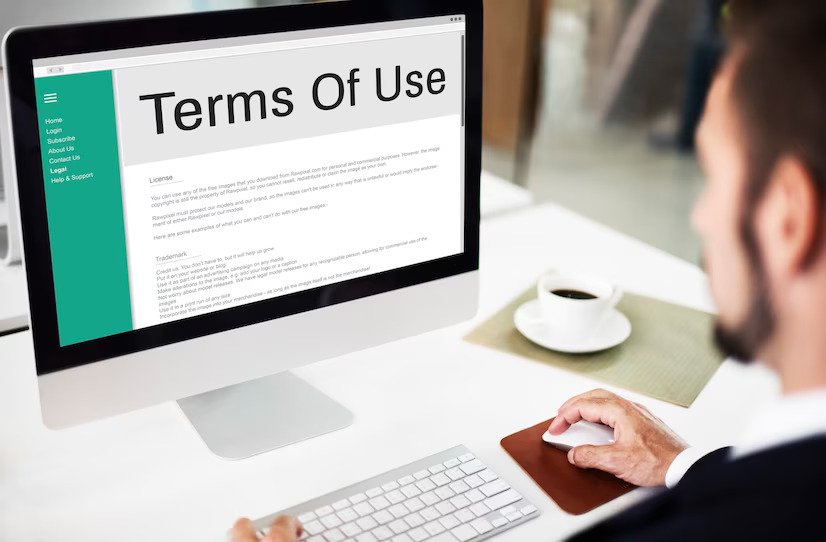How To Create A Terms Of Use Page For Your Website – Small Business Trends
by Arnab Dey Technology 16 May 2023

A Terms of Use page is all too often overlooked, but this can be a critical document for your business website, allowing you to inform users of the rules, regulations, and laws that govern your website.
Creating an effective and legally sound Terms of Use page for your website can be challenging – and so we have put together everything you need to know to get this right and protect your website. Read on to learn more.
What Are a Terms of Use Page?
A Terms of Use page is a legal agreement between the website owner and the website’s users outlining rules, regulations, and laws pertaining to the use of the website and its content. It serves as protection for the business in case of any legal disputes.
The Terms of Use page should provide information about the website, including its purpose and ownership, as well as any relevant disclaimers. Additionally, it should detail your rights when it comes to copyright and intellectual property protection.
Why Are a Terms of Use Page So Important?
A Terms of Use page is essential for any website – as mentioned, this document outlines the rules, regulations, and laws which apply when visitors use a website and its content.
This protects both parties from potential legal issues that could arise from misuse or misunderstanding of what the site offers. Users understand their rights connected to the website, such as copyright and intellectual property law.
How to Create a Terms of Use Page

So, just what should be included in a Terms of Use page? There are a few sections and considerations to include, and these are:
1. Outline your website’s purpose
First and foremost, it’s important to outline the purpose of your website. This should include information about the business, its mission, any products or services offered, as well as any user-generated content that is available on the website.
2. Describe your rights
You should also take this opportunity to detail your rights when it comes to copyright and intellectual property protection – this includes outlining who has the right to use the content on your website, as well as how it can be used.
3. Include disclaimers
It is recommended to have disclaimer and privacy policy pages on a website, as this will help guard against any potential legal disputes. These pages should cover how the website collects, uses, and protects personal information and can be used in conjunction with a Privacy Policy page or section.
4. Provide adequate contact details
It is essential to include contact information on the Terms of Use page so that individuals can reach out with any inquiries. This may include an email address, phone number, or mailing address.
What Are the Benefits of a Terms of Use Page?
A Terms of Use page is an essential tool for any website and offers a number of advantages, including:
A. Protects from legal disputes
A Terms of Use page can help reduce the risk of any legal disputes that might arise from using your website. It sets out rules, regulations, and laws governing usage and helps make sure users are aware of their rights and obligations when using your website’s content.
B. Keeps users and visitors informed
A Terms of Use page provides clarity on the website’s purpose, ownership, and any disclaimers associated with it. This can help to maintain a common understanding among all users and visitors, reducing the risk that the Terms will be violated.
C. Helps establish trust
A Terms of Use page serves to create trust between the user and the business, showing that suitable measures have been taken to protect them and the business. This is especially pertinent for businesses centered around user-created content, such as social media sites.
What Are the Limitations of a Terms of Use Page?

While a Terms of Use page can be an extremely useful tool for any website, it does have some limitations., and some of the main potential issues to be aware of include:
Enforcement
Without proper enforcement of your Terms of Use page, there is a risk that users will not adhere to the rules and regulations outlined in the document. This could lead to disputes arising from misuse of your website’s content, so it is important to have a clear process for dealing with any such issues.
Inadequate coverage
It should also be noted that a Terms of Use page may not be comprehensive in addressing all areas pertaining to the website, such as user privacy and data protection – it is a good idea to have an expert look over your Terms before you upload them to your site.
Final Thoughts
Crafting a Terms of Use page is a critical step to safeguard you, your company, and your website from any legal conflicts. By adhering to the measures described here, you can make sure your Terms of Use page is valid and reliable, giving you peace of mind that your website is safe and allowing your business extra protection.
Read Also:



































































































